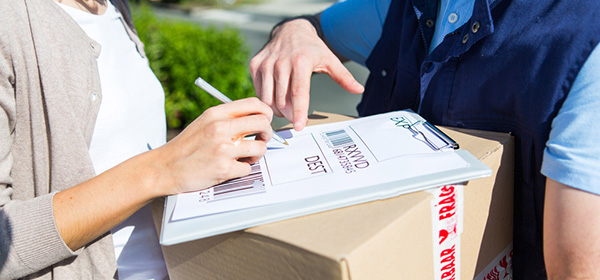In a bid to level the playing field between digital and bricks-and-mortar sales, the Government is planning to increase the GST on imported products such as those purchased online.
Federal Treasurer Joe Hockey hinted last week that he had “found a way to ensure that those providing goods from overseas into Australia do not get any advantage out of the tax-free threshold”. He is now reportedly pushing a plan to reduce the GST-free low value threshold (LVT) on goods bought online from $1000 to $20.
The new rule would be applied from July 2017 should his proposal be approved by state treasurers at a Treasurers’ meeting next month.
Australians spent $17.1 billion online in the last year. Around $4 billion of this went to overseas online megastores such as Amazon, with none going back into the Australian economy.
A similar idea has been floated in the past, but analysis showed that the cost of administering such a scheme would far outweigh the potential gains. It was estimated that lowering the threshold to $20 would bring in $550 million but cost $2 billion to process.
The Government’s proposal is another show of support for small business, which struggles to compete with online retailers.
“We’ve now found a way to ensure that those providing goods from overseas, into Australia, do not get any advantage out of the tax free threshold,’’ said Mr Hockey. “This is hugely important for small business.”
The Treasurer and his assistant will propose the Government’s plan to state treasurers on 21 August.
Read more at Sydney Morning Herald.
Read more at www.couriermail.com.au
Read more at www.choice.com.au
Opinion: Who foots the bill?
This move may level the playing field between small business and online retailers, but at what cost to the Australian consumer?
Lowering the GST-free threshold, or low value threshold (LVT), on imported goods will remove one more way in which consumers can potentially get ahead of the high prices we already pay for goods in this country.
How much more will we pay for imported goods? Consumer advocate CHOICE estimates that Australian consumers could pay mark ups in the vicinity of 256 per cent on goods under $100 by the time they pay the proposed GST and processing fees.
There are arguments that Britain, Canada and the US all have GST applied to goods valued at less than $1000 (Canada C$20, Britain £15 and the US applies tax to all imported goods). But there is also evidence that Australians buy online for the wider range of products available to them, as well as to lower costs.
Assistant Treasurer Josh Frydenberg may argue that the current threshold is “fundamentally unfair”, but the countries he’s measuring against have much larger populations and a wider range of choice, so this proposal will not only increase the cost of goods, but also further reduce the buying options available to Australian consumers. It is likely that it will make online shopping no longer an option for most of us.
By reducing the LVT, it is more likely that consumers will foot the bill in the long run, making our country, which is already one of the most expensive places in the world to live even costlier. And it’s another example of a Government trying to stick it to the little guy.
Even the Productivity Commission agrees that the cost of processing such a tax would be high – potentially higher than the perceived gains. Mr Hockey believes that advances in technology will make this process less expensive, but where are the figures to back up his statement?
It’s not that this tax should be ruled out completely, but lowering the threshold from $1000 to $20 will not only increase the cost of living for many Australians, it will also eliminate any leverage consumers have in keeping local business pricing competitive and fair.
Small business may be better off for Mr Hockey lowering the GST-free threshold, but it’s we, the consumer, who’ll foot the bill, and whose bottom line will be most affected.
What do you think? Do you shop online? Would you be happy paying more for imported goods? Will this proposed tax increase your cost of living? Do you think there’s a better way for the Government to boost our economy that doesn’t come at such a high cost to the consumer?

